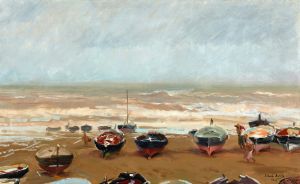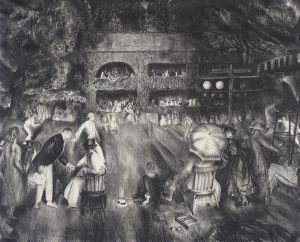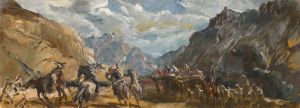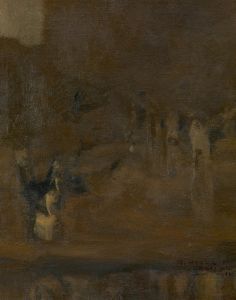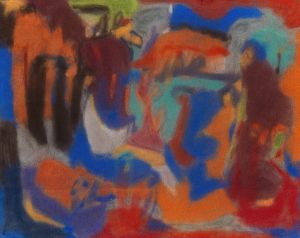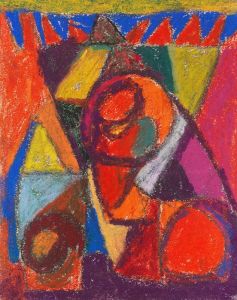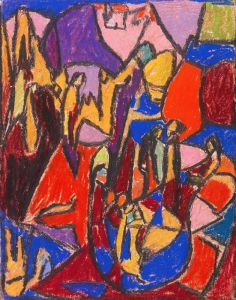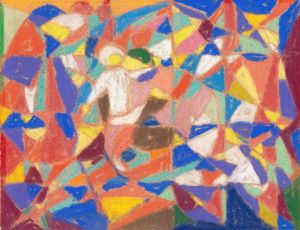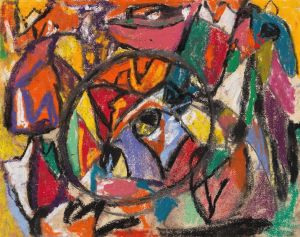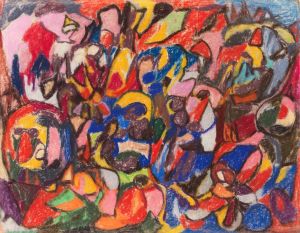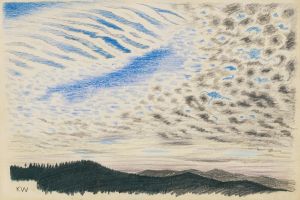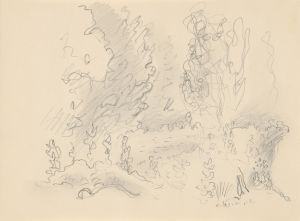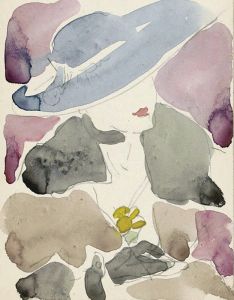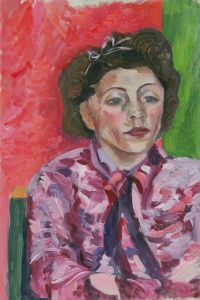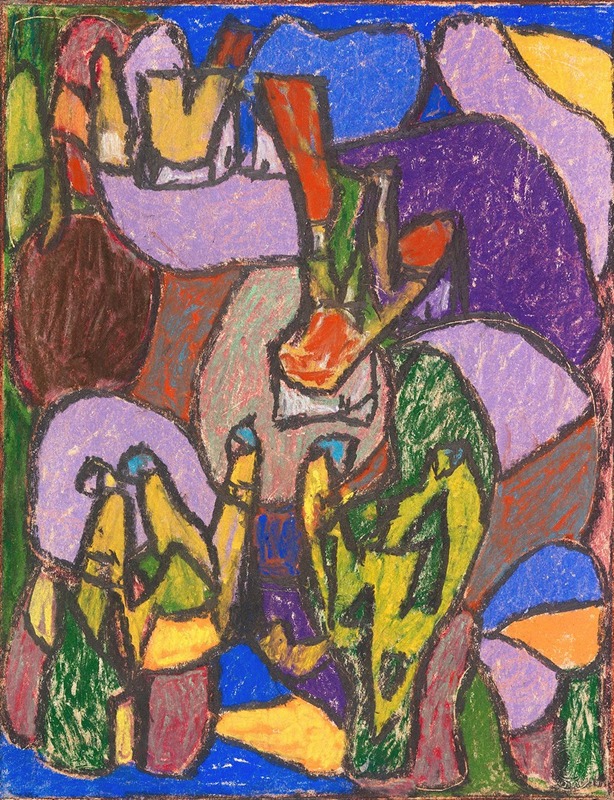
Ohne Titel
A hand-painted replica of Adolf Hölzel’s masterpiece Ohne Titel, meticulously crafted by professional artists to capture the true essence of the original. Each piece is created with museum-quality canvas and rare mineral pigments, carefully painted by experienced artists with delicate brushstrokes and rich, layered colors to perfectly recreate the texture of the original artwork. Unlike machine-printed reproductions, this hand-painted version brings the painting to life, infused with the artist’s emotions and skill in every stroke. Whether for personal collection or home decoration, it instantly elevates the artistic atmosphere of any space.
Adolf Hölzel was a German painter and art theorist, recognized for his contributions to abstract art and his influence on modern art movements. One of his notable works is "Ohne Titel," which translates to "Untitled" in English. This piece exemplifies Hölzel's exploration of color, form, and abstraction, which were central themes throughout his artistic career.
Hölzel was born on May 13, 1853, in Olomouc, then part of the Austrian Empire, and he later moved to Germany, where he became a pivotal figure in the transition from traditional to modern art. He studied at the Academy of Fine Arts in Vienna and the Academy of Fine Arts in Munich, where he developed his skills and began to form his artistic philosophy. Hölzel's work is characterized by a departure from representational art, focusing instead on the expressive potential of color and form.
"Ohne Titel" is a reflection of Hölzel's mature style, which often involved the use of geometric shapes and vibrant colors to create dynamic compositions. His approach was influenced by his interest in music and spirituality, seeking to evoke emotions and ideas through visual means. Hölzel believed that art should transcend mere representation and instead communicate deeper truths and experiences.
Throughout his career, Hölzel was associated with several important art movements and groups. He was a member of the Munich Secession, a group of artists who broke away from the traditional art institutions in Munich to pursue more progressive and innovative approaches to art. Later, he became a professor at the State Academy of Fine Arts in Stuttgart, where he mentored many artists who would go on to become influential figures in their own right, including Oskar Schlemmer, Willi Baumeister, and Johannes Itten.
Hölzel's theories on color and composition were highly influential, and he is often credited with laying the groundwork for the development of abstract art in the 20th century. His emphasis on the autonomy of color and form can be seen as a precursor to the work of later abstract artists, such as Wassily Kandinsky and Paul Klee.
Despite his significant contributions to modern art, Hölzel's work, including "Ohne Titel," is not as widely known as that of some of his contemporaries. However, his impact on the art world is undeniable, as he helped to shape the direction of modern art through both his teaching and his own artistic practice.
In summary, "Ohne Titel" by Adolf Hölzel is a testament to the artist's innovative approach to color and form, reflecting his belief in the expressive power of abstract art. Through his work and teachings, Hölzel played a crucial role in the evolution of modern art, influencing generations of artists and contributing to the development of abstract art as a major movement in the 20th century.





